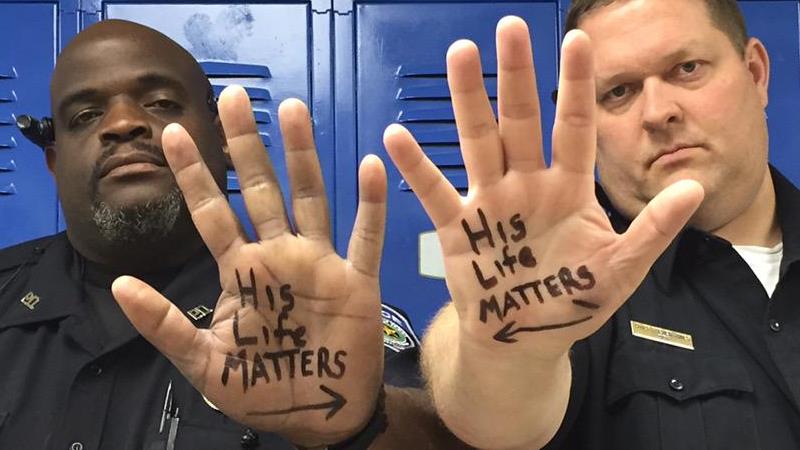Good words and phrases sometimes get hijacked. I think “social justice” is one of those. Justice is synonymous with righteousness; the concept comes straight from the heart of God. Justice in social relations, justice in society at large, should be what we all aim for.
What, though, qualifies as justice in a society? Here are my ideas.
 First, social justice should mean we recognize the inherent image of God in each person and treat one another accordingly. It should begin with the most vulnerable and innocent—the pre-born. True social justice will do all that is possible to protect our future generation by abolishing abortion.
First, social justice should mean we recognize the inherent image of God in each person and treat one another accordingly. It should begin with the most vulnerable and innocent—the pre-born. True social justice will do all that is possible to protect our future generation by abolishing abortion.
Second, social justice will recognize the commonality of mankind as one race. Lately, it has become unacceptable in some circles to say there is only one race: human. Yet, as we’re told in Scripture via the apostle Paul,
He [God] made from one man every nation of mankind to live on all the face of the earth.
That should wipe out animosity toward one another based on ethnic differences. We all descended from one human father and mother. God likes variety.
 Third, social justice will want to encourage a loving environment in which to raise children. That means support for the one man-one woman arrangement called marriage as established by God. It’s right on its face, but beyond that, studies show that children raised in a stable traditional family will feel more loved and will have a better future.
Third, social justice will want to encourage a loving environment in which to raise children. That means support for the one man-one woman arrangement called marriage as established by God. It’s right on its face, but beyond that, studies show that children raised in a stable traditional family will feel more loved and will have a better future.
Single-parent situations, especially for single mothers, engender instability and increase the number of children who will live in poverty. Those children also will be more likely to follow the same pattern in their lives. That’s not social justice.
Fourth, social justice is achieved more often through a vibrant free-market, private-enterprise system that allows people to advance according to their merit, removing stumbling blocks for success that are often placed in their way by the government. If we really want to help people out of poverty, we will support this kind of economic liberty.

Think of our racial divisions at the moment and the poverty that is endemic in inner-city neighborhoods. What else do we find there? High abortion rates; 70% of children living in single-parent homes; government “help” that only creates greater dependence and makes people think they have no options in the free-market, private-enterprise system that works all around them.
 Those factors are then magnified by inflammatory rhetoric that increases bitterness toward those who are successful and disdain for a society that has offered the greatest advantages the world has ever seen.
Those factors are then magnified by inflammatory rhetoric that increases bitterness toward those who are successful and disdain for a society that has offered the greatest advantages the world has ever seen.
This is where the Christian faith steps in to point us all in the right direction. Those who are embittered need to understand that sin is sin, no matter how justified one might feel in that bitterness. Repentance from bitterness and racial rage is imperative.
Those who have material success also must understand that the Christian mandate is to reach out to those who are in need and use the prosperity God has granted to help others. It’s that personal connection—showing the love of Christ to those who think God’s love is missing—that leads them to the Truth.
As with the phrase “there is only one race—human,” so the comment “all lives matter” has come under attack. Supposedly, to use that phrase marks one as racist. Yet I see the opposite in Scripture.
I think of the most well-known verse, in which Jesus states,
For God so loved the world, that He gave His only begotten Son, that whoever believes in Him shall not perish, but have eternal life.
There’s also this reminder in 2 Peter, which states that the Lord is patient toward us, “not wishing for any to perish but for all to come to repentance.”
Both of those verses make clear to me that all lives matter to God.

There’s also this in the book of Colossians, in which the apostle Paul writes of a spiritual renewal through Christ “in which there is no distinction between Greek and Jew, circumcised and uncircumcised, barbarian, Scythian, slave and freeman, but Christ is all, and in all.”
Ethnic distinctions mean nothing to God when it comes to relationship with Him. They should mean nothing to us as well with respect to our relationships with one another.
This passage from the book of Ephesians should be our guide:
Let all bitterness and wrath and anger and clamor and slander be put away from you, along with all malice. Be kind to one another, tender-hearted, forgiving each other, just as God in Christ also has forgiven you.
If we do that, social justice will be achieved.
